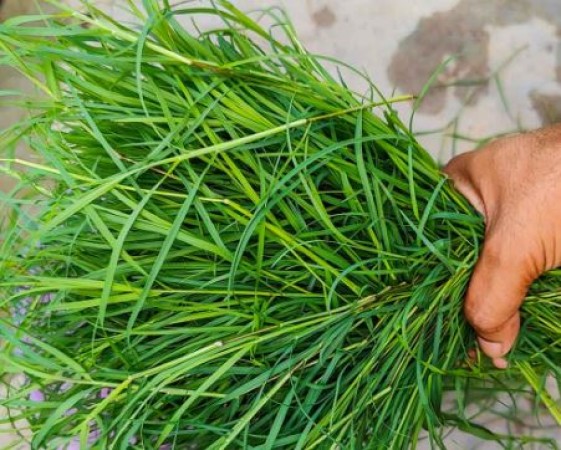
Green Durva grass, scientifically known as Cynodon dactylon, is a perennial grass that holds immense significance in Hindu traditions and rituals, particularly in the worship of Lord Ganesha. Beyond its spiritual importance, this humble grass has been lauded for its medicinal properties and therapeutic benefits that range from treating piles to alleviating mouth ulcers. In this article, we delve into the diverse health benefits of green Durva grass, exploring its historical roots, nutritional profile, and various traditional and modern applications.
Historical and Spiritual Significance
Green Durva grass has deep-rooted cultural and spiritual importance in Hinduism. In the worship of Lord Ganesha, it is customary to offer this grass as part of various rituals. The tradition of using Durva grass dates back centuries, with mentions in ancient texts such as the Atharva Veda and the Puranas. According to Hindu mythology, Lord Ganesha is fond of Durva grass, and offering it is believed to please the deity and invoke his blessings. Beyond its spiritual symbolism, this grass has garnered attention for its potential health benefits.
Nutritional Profile
Green Durva grass is a rich source of various essential nutrients that contribute to its medicinal properties. It contains essential amino acids, vitamins, minerals, and phytochemicals that contribute to its health-promoting effects. Some of the key nutrients found in Durva grass include:
Fiber: Durva grass is abundant in dietary fiber, which aids in digestion, regulates bowel movements, and promotes gut health.
Vitamins: It is a good source of vitamins like A, C, and E, which are essential for maintaining healthy skin, boosting the immune system, and supporting overall well-being.
Minerals: Durva grass contains minerals such as calcium, iron, and magnesium, which are vital for bone health, oxygen transport, and nerve function.
Antioxidants: The presence of antioxidants in Durva grass helps combat oxidative stress and reduce the risk of chronic diseases.
Health Benefits
Digestive Health: The high fiber content in Durva grass is beneficial for promoting healthy digestion. It aids in preventing constipation, maintaining regular bowel movements, and supporting a healthy gut environment.
Piles (Hemorrhoids): Durva grass has been traditionally used for its potential to alleviate symptoms of piles. The fiber and bioactive compounds in the grass may help in reducing inflammation, easing discomfort, and promoting healing.
Mouth Ulcers: Durva grass has a soothing effect on the mucous membranes and may aid in treating mouth ulcers. It is often used in the form of herbal pastes or gargles to provide relief from discomfort and promote healing.
Anti-inflammatory Properties: The presence of bioactive compounds in Durva grass contributes to its anti-inflammatory effects. It may help in reducing inflammation in various parts of the body, contributing to overall well-being.
Wound Healing: Traditional remedies often use Durva grass for its potential to aid in wound healing. Its antimicrobial and soothing properties may support the healing process and prevent infections.
Skin Health: The vitamins and antioxidants present in Durva grass can contribute to healthy skin. Its topical application or inclusion in skincare formulations may help in rejuvenating the skin and maintaining its natural glow.
Stress Reduction: Durva grass is believed to possess calming properties. Its aroma and the act of cultivating or handling it may have a soothing effect, potentially contributing to stress reduction.
Modern Applications
In recent years, the health benefits of Durva grass have gained attention in the field of alternative medicine and holistic healing. It has been incorporated into various forms of therapies, such as Ayurveda and traditional Chinese medicine, to address a wide range of health concerns. Modern research has begun to explore the bioactive compounds present in Durva grass and their potential mechanisms of action.
Ayurveda: In Ayurvedic practices, Durva grass is used as a remedy for digestive issues, wound healing, and overall well-being. It is often included in herbal formulations and dietary recommendations to enhance health.
Herbal Preparations: Durva grass is used to prepare herbal teas, infusions, pastes, and powders that can be consumed or applied topically for various health benefits.
Supplements: Some wellness brands offer Durva grass supplements in the form of capsules or powders, making it convenient for individuals to incorporate its benefits into their daily routine.
Green Durva grass, often associated with Lord Ganesha and Hindu rituals, offers a plethora of health benefits that extend far beyond its spiritual significance. From aiding in digestion and treating piles to soothing mouth ulcers and promoting wound healing, its diverse therapeutic properties have been recognized in traditional medicine systems and are increasingly being explored by modern research. As we delve deeper into the potential of this humble grass, it's important to remember its historical roots and the wisdom embedded in ancient practices that continue to enrich our understanding of holistic health.
Fertilizers for Kharif Planting; States Urged to Counter Urea Diversions: Mandaviya
Health Benefits of Bhutta During Rainy Days: 8 Reasons to Enjoy Corn Daily